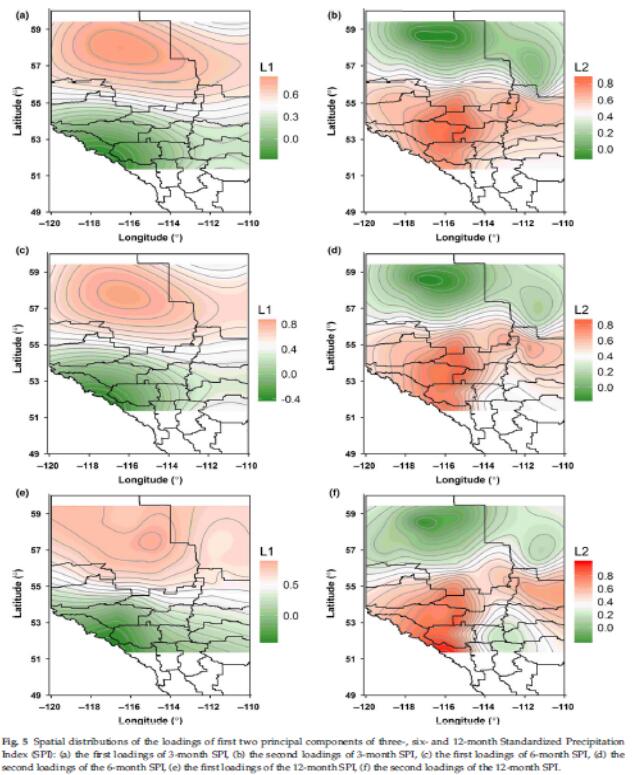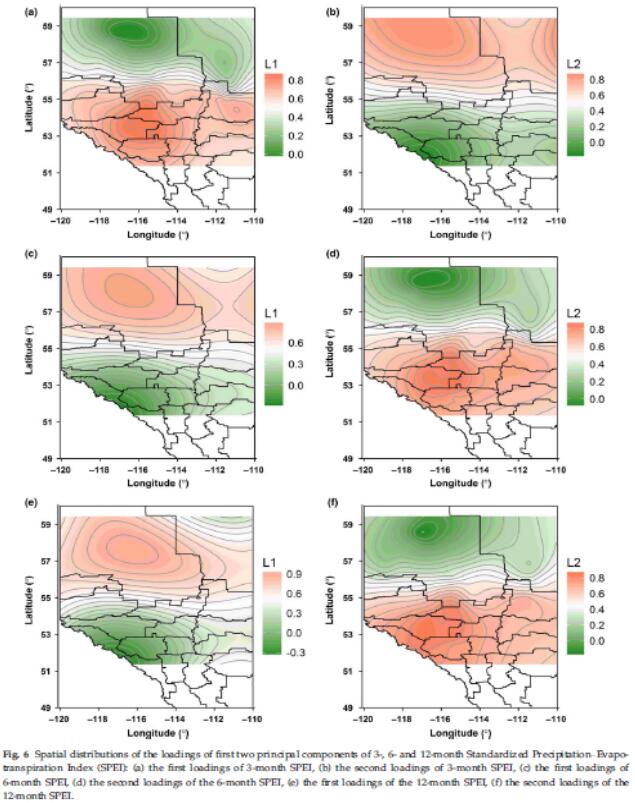Adequate and advanced knowledge of the response of forest ecosystem to temperature-induced drought is critical for a comprehensive understanding of the impact of global climate change on forest ecosystem structure and function. Recent massive decline in aspen-dominated forests and an increased aspen mortality in boreal forests have been found associated with global warming. However, it is still uncertain whether such decline and increased mortality are driven by drought.
Professor Huang Jianguo(correspondence, Forest Ecology and Simulation Research Group, South China Botanical Garden, Chinese Academy of Sciences) and co-operators (University of Alberta) used a series of ring-width chronologies from 40 trembling aspen (Populus tremuloides Michx.) sites along a latitudinal gradient (from 52° to 58°N) in western Canada and attempted to clarify the impacts of drought on aspen growth by using Standardized Precipitation Index (SPI) and Standardized Precipitation Evapotranspiration Index (SPEI). The results indicated that prolonged and large-scale droughts had a strong negative impact on trembling aspen growth. Furthermore, the spatiotemporal variability of drought indices is useful for explaining the spatial heterogeneity in the radial growth of trembling aspen. Due to the ongoing global warming, it is likely that severer droughts with a higher frequency will occur in western Canada. As trembling aspen is sensitive to drought, they suggest that drought indices could be applied to monitoring the potential effects of increased drought stress on aspen growth so as to achieve classification of eco-regions and develop effective mitigation strategies to maintain western Canadian boreal forests.
This research is published inGlobal Change Biology(IF: 8.444,2016). This project was mainly funded by the 100 Talents Program of the Chinese Academy of Sciences (CAS) (No. Y421081001). Other funding agencies include China Scholarship Council (CSC), National Natural Science Foundation of China (Grant No. 31570584, 31550110208 & 41661144007), China Postdoctoral Science Foundation (Grant No. 2015M582433), Academy of Finland (Projects No. 1284701, 1282842 & 285630) and ICOS-Finland (Project No. 281255), Natural Science and Engineering Research Council of Canada, Mixedwood Management Association and Forest Resource Improvement Association of Alberta.
Read the article:http://onlinelibrary.wiley.com/doi/10.1111/gcb.13595/epdf.





